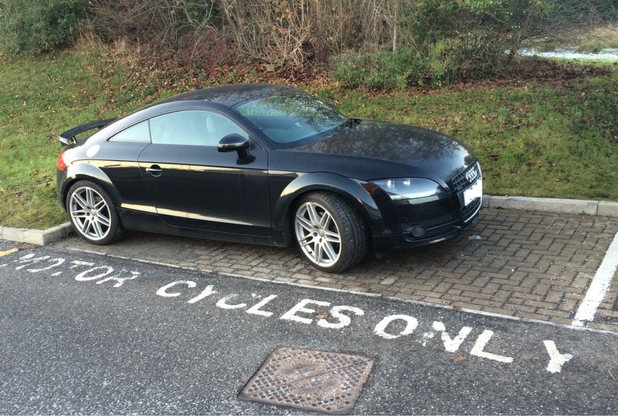If more was done to encourage motorcycles and scooters, cities across the world would save billions of dollars on providing valuable parking space.
A study of five American cities has found that the costs of providing huge chunks of land for car-parking spaces are in the billions and, in per-household terms, up to $200,000 (all dollar values in this article are in US terms).
While the study looked at American cities, it can also be related to car-centric Australia: New York (Sydney/Melbourne/Brisbane), Philadelphia (Adelaide/Perth/Canberra), Seattle (Gold Coast/Newcastle/Geelong), Des Moines (Toowoomba/Wollongong/Ballarat) and Jackson (Kingaroy/Swan Hill/Parkes).
Allowing motorcycles to park on footpaths for free and encouraging more people to ride would reduce the dependance on these vast parking areas of our car-centric cultures. Yet forward-thinking cities such as Melbourne who have allowed motorcycle footpath parking for decades are actually now rethinking the progressive move.
Costs of parking
The US parking study by the Research Institute for Housing America uses data from satellite images, the US Census, property tax assessment offices, city departments of transportation, parking authorities, and geospatial maps such as Google Maps.
Other studies have found the cost of parking is substantial, but this is the first to assign actual figures.
Previous studies have shown the real costs of parking are:
- Direct expense to developers who have to meet minimum off-street parking provisions on new developments;
- Expensive underground parking “solutions” increase the cost of developments which are passed on as high rental charges for tenants;
- Social costs of devoting space to parking instead of recreation;
- Environmental costs of heat reflection and lack of green areas; and
- Traffic congestion costs due to the fact that the provision of parking encourages more people to drive.
Over-supply
While many motorists bemoan the lack of parking in the CBD, the fact is that urban cultures such as America devote too much space to parking.
It’s estimated that there are two billion parking spots in the US for about 200 million cars.
Look around our urban landscape at the vast shopping centre parking spaces and it is likely our nation, which has a similar urban landscape and car-centric culture, is also plagued by the over-abundance of parking.
Urban problem
The problem is not just one for big cities, either. It’s also endemic to regional centres.
For example, Jackson in Wyoming only has a population of just 10,000 like Kingaroy in rural Queensland.
Yet it has more than 50 parking spaces per acre, 25 times its residential density of two households per acre which is a massive 27 parking spaces for each of its households, or a cost of almost $200,000.
Des Moines which is similar to our biggest inland city, Toowoomba, has nearly 30 parking spaces per acre, 20 times its residential density of 1.5 households per acre and $75,000 in costs per household.
Seattle (Gold Coast/Newcastle/Geelong) also has 30 parking spaces per acre, more than five times its residential density with more than five parking spaces for every household and costs of more than $100,000.
Costs are actually less in the big metropolitan centres.
Check out this table from the study.
|
City |
New York |
Philadelphia |
Seattle |
Des Moines |
Jackson, WY |
|
Total parking spaces |
1.85 million |
2.2 million |
1.6 million |
1.6 million |
100,119 |
|
Parking density per acre |
10.1 |
25.3 |
29.7 |
28.4 |
53.8 |
|
Parking spaces per household |
0.6 |
3.7 |
5.2 |
19.4 |
27 |
|
Total replacement cost of parking |
$20.1 billion |
$17.5 billion |
$35.8 billion |
$6.4 billion |
$711 million |
|
Parking cost per household |
$6,570 |
$29,974 |
$117,677 |
$77,165 |
$192,138 |
Table provided by CityLab
Clearly, instead of vilifying motorcycles and scooters, more should be done to encourage their use to reduce our costs of infrastructure, including parking.



